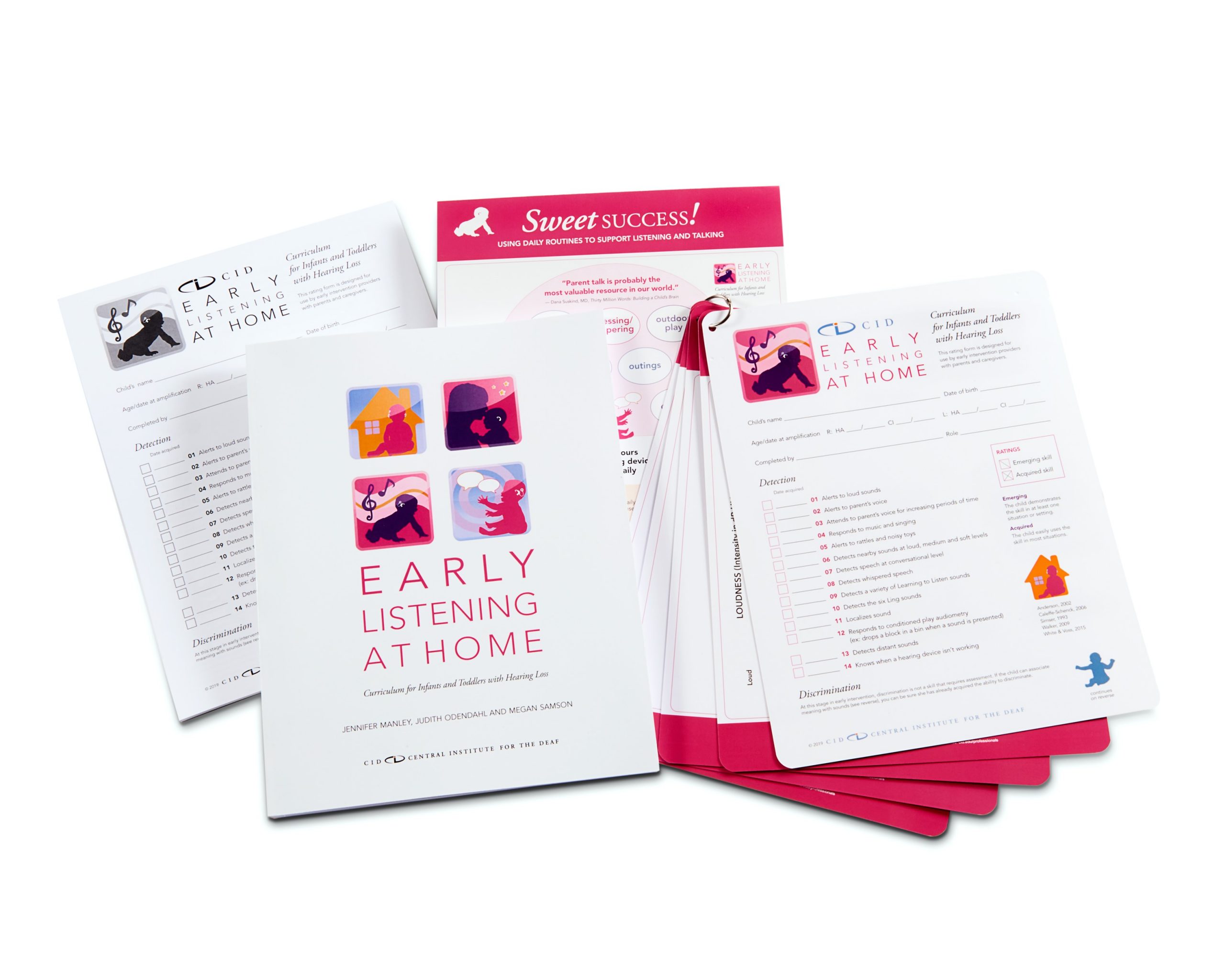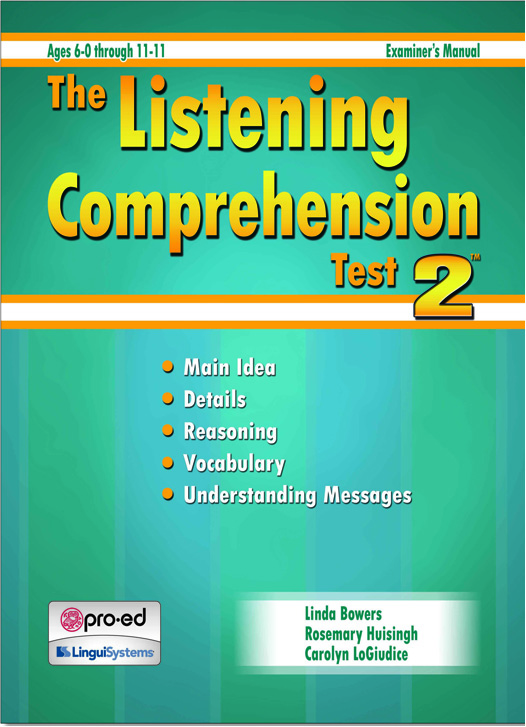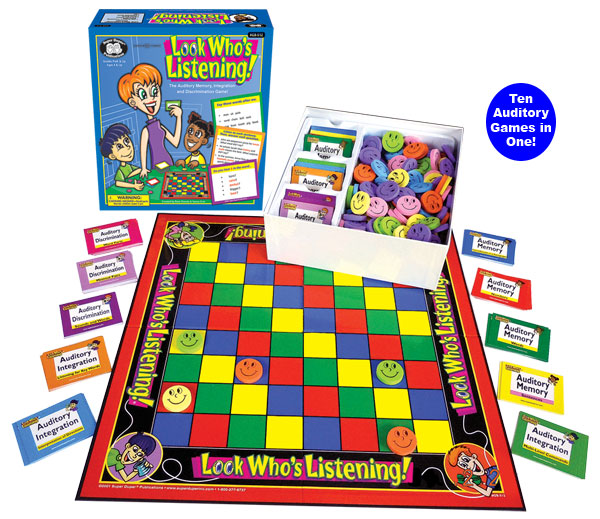Related Products
For Professionals
- Amplification
- Assessment of Student Skills, Challenges, Needs
- Early Childhood: Infants, Toddlers, Preschool
- Hearing Loss – Identification, Impact and Next Steps
- IDEA Law Summary Information
- Language and Speech Development Issues
- Legal Issues in Serving Children with Hearing Loss
- Listening (Auditory Skills) Development
- Planning to Meet Student Needs
- Self-Advocacy Skills for Students with Hearing Loss
- Self-Concept: How the Child with Hearing Loss Sees Himself
- Social Skills
- Speech Perception & Learning
Related Teacher Tools Takeout Items
Fatigue from Listening with Hearing Loss in School
Fatigue from Listening with Hearing Loss in School

Individuals with hearing loss must put forth more “listening effort” and cognitive resources to attend to auditory information, which can be exhausting. The repeated need for extra listening effort in challenging situations can lead to listening-related fatigue. For children, severe fatigue is associated with increased stress, poorer performance in school, and increased absences. Educators, audiologists, and other hearing health professionals can support students dealing with listening-related fatigue. Read on to learn about how to help your student avoid or recover from listening-related fatigue.
Fatigue is often described as being extremely tired, a lack of energy, and/or a lack of motivation to continue on with a task. Intuitively, we understand that we can get worn out from time to time, from both physical tasks (e.g., running) or mental tasks (e.g., focusing all day at work). It is very common to experience this type of fatigue and healthy individuals can bounce back relatively easily with breaks or recovery periods. However, for some individuals, fatigue can be debilitating, and recovery is difficult. This is concerning as long-term outcomes related to fatigue can be negative, affecting quality of life and work performance in adults. For children, severe fatigue is associated with increased stress, poorer performance in school, and increased absences. It can also be a precursor to mental health problems in adulthood.
What does fatigue have to do with listening and children with hearing loss? Recent research has shown that even the “simple” act of listening and understanding can be exhausting. Individuals with hearing loss must put forth more “listening effort” and cognitive resources to attend to auditory information. The repeated need to expend effort to listening in challenging situations can lead to listening-related fatigue. For children with hearing loss, the school classroom and associated listening requirements can be fatiguing. We know that most modern classrooms can have poor acoustics with significant reverberation times and elevated background noise (challenge #1) and that students have to listen to multiple talkers throughout the day (challenge #2) while multi-tasking by listening and performing other functions, such as note taking (challenge #3). These factors, as well as others, may contribute to a child with hearing loss developing listening-related fatigue.
| Children with hearing loss reported feeling physically and/or mentally tired as the result of noisy listening situations. Teachers reported increased distractibility and off-task behaviors compared to children without hearing loss, especially at the end of the school day. Parents noted several coping strategies, including removing amplification devices (e.g., hearing aids, cochlear implants), taking a rest/nap after school, and avoiding noisy social situations as methods to deal with fatigue. |
Of course, not all children experience the same challenges or have the same needs. We are interested in determining which children with hearing loss are most at risk for significant fatigue so that we can help them clinically and educationally. To do so, we have been developing pediatric fatigue questionnaires that specifically target listening-related fatigue in children. First, we wanted to better understand the concept of fatigue from children with hearing loss, their parents, and their teachers by hosting focus groups and interviews. Example quotes obtained from participants in the focus groups follow on the next page. These responses, as well as others provided by the participants, helped us to write items (i.e. questions) for our fatigue scales. While analyses are ongoing, we hope to have the Fatigue Scales available online for widespread use later in 2021.
| “Yesterday we took a field trip to a museum. The gentleman was great, but he spoke so fast—she was still missing stuff in a very hectic environment. If things go really, really quick for her, I can tell it’s a lot for her. She has to make an effort and it wears her out.” –Parent of a child with hearing loss
“When I get tired of listening to things, I just tell my friends, “I’m tired of listening to you, I’m gonna turn you down [turn volume down on hearing aids]. If you need me, tap me.” And I just do that for fifteen, thirty minutes.”–Teen with hearing loss “I must remember to give my student a break during one-on-one sessions. He needs a moment to not have to listen and to tune out. If he doesn’t get that break, his behavior is significantly impacted.” –Speech-language pathologist |
Educators, audiologists, and other hearing health professionals can support students dealing with listening-related fatigue. Consider signs and symptoms of listening-related fatigue in your students. We found that many children did not realize they were experiencing fatigue throughout the school day. In fact,
| Do your students complain of being tired or worn out more frequently than students without hearing loss?
Do they zone out or have trouble concentrating during long periods of listening? Do they take their devices off throughout the day? Do their parents note that they require listening breaks or naps after school? If so, talk to your student about fatigue. |
several adults with hearing loss told us that they could not articulate their difficulties with listening-related fatigue until young adulthood.
Students may need support to better understand challenging listening situations and how to advocate for themselves, if needed. Discussing this topic with parents, teachers, and administrators is important too. The students who participated in our study felt limited in their abilities to ask for interventions, such as breaks, because of the structure of the school day. It is important for the whole team to strategize best practices to support each student.
What will help your student avoid or recover from listening-related fatigue? Although no systematic research has been completed on listening-related fatigue interventions, there are several considerations that may be beneficial for your students.
-
- Assess the student’s listening environment. Look for ways to improve acoustics by minimizing background noise or reverberation in the space. Participants repeatedly reported background noise as fatiguing.
- Provide accommodations, such as preferential seating, captioning, or note-taking by a peer. Anything that may help reduce effort while listening could be helpful for your student.
- Review the student’s amplification use (both personal amplification and school-owned remote microphone technology). Although research on amplification and fatigue reduction is mixed, teachers reported that students appeared less fatigued when utilizing their technology consistently.
- Employ good communication strategies (and encourage others to do the same). Participants reported that children got fatigued more quickly when others spoke too quickly or had their back turned. Ensure the child can see the person talking.
- Review the student’s schedule. Many teachers said the students were worn out toward the end of the day/end of the week. If you can, schedule auditory-heavy content at the beginning of the day or at a time when your student can do their best work.
| Counsel the student about fatigue. Discuss challenging listening situations and involve them in determining potential interventions or coping strategies to alleviate fatigue if it arises. Practice scripts so the child can appropriately ask for an intervention if needed. |
- Schedule “listening breaks” so the student can intentionally turn off from listening. There is no current consensus on the duration, frequency, or type of break required. Needs may vary based on the individual student. Suggestions from participants in our study included allowing the child to rest their head on the desk, take off their device for a short period of time, complete a leisure activity that does not require listening, or complete a movement break.
- Be on the lookout for the Vanderbilt Fatigue Scales! Analyses are ongoing but we hope to have the assessments available online for widespread use later this year. Check our website for links to our publications and to keep up-to-date on the release date for the scales.
Hilary Davis is a pediatric audiologist at the Vanderbilt University Medical Center in Nashville, TN. She sees patients in the Bill Wilkerson Center, provides contract educational audiology services to local school districts, and collaborates on several research studies within the department. Her current interests are fatigue in school-age children with hearing loss and supporting educators as they work with students with hearing loss.



